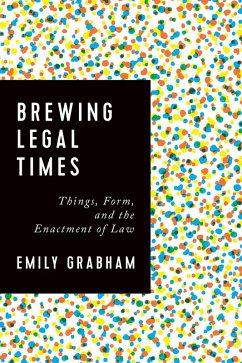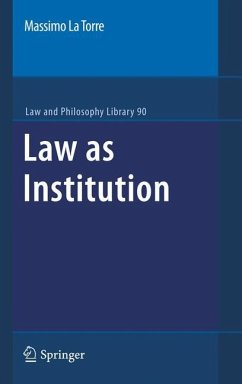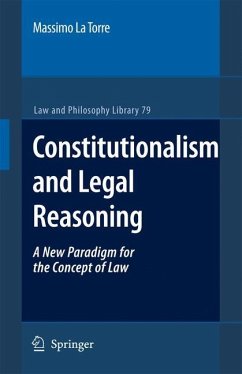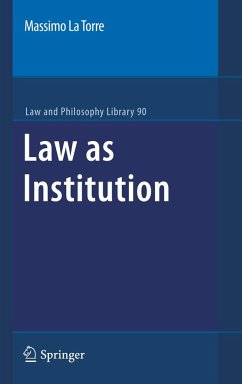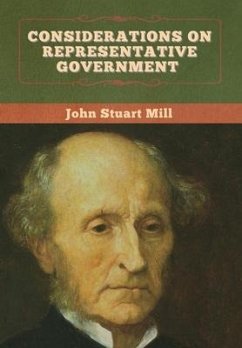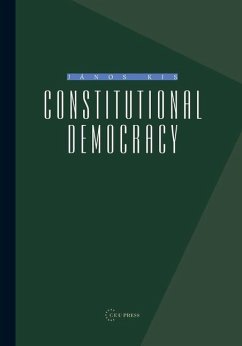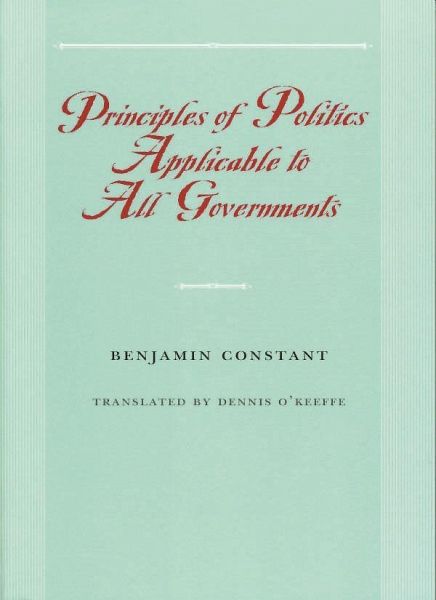
Principles of Politics Applicable to All Governments
Versandkostenfrei!
Versandfertig in über 4 Wochen
24,99 €
inkl. MwSt.
Weitere Ausgaben:

PAYBACK Punkte
12 °P sammeln!
Benjamin Constant (1767-1830) was born in Switzerland and became one of France's leading writers, as well as a journalist, philosopher, and politician. His colourful life included a formative stay at the University of Edinburgh; service at the court of Brunswick, Germany; election to the French Tribunate; and initial opposition and subsequent support for Napoleon, even the drafting of a constitution for the Hundred Days. Constant wrote many books, essays, and pamphlets. His deepest conviction was that reform is hugely superior to revolution, both morally and politically. While Constant's fluid...
Benjamin Constant (1767-1830) was born in Switzerland and became one of France's leading writers, as well as a journalist, philosopher, and politician. His colourful life included a formative stay at the University of Edinburgh; service at the court of Brunswick, Germany; election to the French Tribunate; and initial opposition and subsequent support for Napoleon, even the drafting of a constitution for the Hundred Days. Constant wrote many books, essays, and pamphlets. His deepest conviction was that reform is hugely superior to revolution, both morally and politically. While Constant's fluid, dynamic style and lofty eloquence do not always make for easy reading, his text forms a coherent whole, and in his translation Dennis O'Keeffe has focused on retaining the 'general elegance and subtle rhetoric' of the original. Sir Isaiah Berlin called Constant 'the most eloquent of all defenders of freedom and privacy' and believed to him we owe the notion of 'negative liberty', that is, what Biancamaria Fontana describes as "the protection of individual experience and choices from external interferences and constraints." To Constant it was relatively unimportant whether liberty was ultimately grounded in religion or metaphysics -- what mattered were the practical guarantees of practical freedom -- "autonomy in all those aspects of life that could cause no harm to others or to society as a whole." This translation is based on Etienne Hofmann's critical edition of Principes de politique (1980), complete with Constant's additions to the original work.





